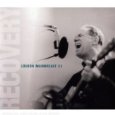 I was just noodling around the web this evening, and I ran across a recent article about why (still!) Linux hasn’t really caught on for the desktop.
I was just noodling around the web this evening, and I ran across a recent article about why (still!) Linux hasn’t really caught on for the desktop.
I haven’t read an article on this topic for a year or so, I gave it a look: “Five ways the Linux desktop shoots itself in the foot.” While I agree, for the most part, with author Steven J. Vaughan-Nichols’ five reasons, he undermines his entire argument (i.e. the five things holding Linux adoption back) in two ways.
1) Even before he begins his litany of Linux missteps, he makes the following observation:
So why aren’t more people using [Linux on the desktop]?
Microsoft is the biggest reason. Microsoft is a jealous monopoly that doesn’t want to share the desktop with anyone.
Yes, play the Evil Empire card. But as Apple demonstrates, one can compete against the behemoth for Redmond, WA. Yes, MS wishes Linux would go away (especially in the server arena) – and is doing as little as possible to accommodate the OSS software. And MS views Apple’s OS as a very real threat on the desktop, yet the Apple OS is flourishing in that environment. Next question?
2) Vaughan-Nichols opens his article with this full disclosure:
I don’t just write about the Linux desktop; I use it every day. At my desk, I tend to use MEPIS and Mint, while on the road, it’s Ubuntu on my Dell netbook and openSUSE on my Lenovo ThinkPad. I do this because they work well and they’re as safe as a desktop operating system can get.
OK, look at that second sentence. We got’s MEPIS/Mint/Ubuntu/openSUSE. WTF? I know what these are, but here’s my conclusion as to why Linux has not caught on for desktop users:
Linux on the desktop is too confusing for all but those very technically inclined.
Vaughan-Nichols says “In 2009, any reasonably smart person can use any major Linux distribution without much trouble.”
There are two problems with this statement:
1) I don’t believe it to be true, in part because …
2) How many smart people know which Linux disto to use (or what a “distro” even is?): openSuse? Ubuntu? Fedora Core? Now let’s get down to the fight between Gnome and KDE etc. Why does/should the author have three different Linux desktops on three different pieces of hardware? Why not, for example, Windows XP on home/work/laptop? To virtually everyone, the latter question makes more sense than the former.
On Windows, it’s a choice between Vista and Windows 7.
On Macs, it’s OS X. End of choices.
Smart people are not necessarily smart about OS choices. Less is actually better. (Ubuntu is kinda working this way.)
Don’t agree? Well, I’ve been working on web sites since 1996 or so, and here are what people – many of them smart – believe/don’t know about using a computer:
- “What’s a browser?”
- “My search engine is Firefox…” (I got this one again this week.)
- They are on the internet when they use Google or Yahoo. To get to Yahoo, for example, some users will go to Google, type in “yahoo.com” and pick the top link (and vice-versa).
- You’re not using the internet if you’re emailing. [What they think it is I dunno, but I’ve heard this one dozens of times.]
- Q: What version of Windows are you using – XP, 2000, Vista? A: Dell.
- Where is that file located on your computer [totally blank look/sound – and when you try to explain the Finder/Windows Explorer…pack it in…]
- No, I never have more than one thing running at a time. Otherwise, it’ll break the computer.
- I know people who have been on Windows since Win3.11 and have just recently reported success at creating a new folder. Whoo-hoo!
Computers, to me, are like anything else – you’re into them or not. I’m not at all into cars, and I never give it a second thought when my car ferries me to/from work.
When my car breaks, I’m helpless. Others will troubleshoot and easily fix. But that’s them.
When my computer breaks, I can – for the most part – fix same. But that’s me.
Apple’s OS X did – brilliantly – what Linux coders had been trying to do for about, what, 8 years? – put a pretty, idiot-proof (as much as possible) OS on top of a Unix flavor running on Intel chips.
OS X kicks ass.
Linux desktops don’t work because of the forking, lack of driver availability and – for the most part – Linux != one OS. Biggest disconnect for “any reasonably smart person.” (The other major issue is software support. Most people have enough trouble using MS Word or Excel; say “download and install Open Office!” and they’ll flee…)
Full disclosure: Most of my work is done on Windows XP boxes. I develop for the web, and the world today views the web via MS OSs. So use a front-end OS. On the other hand, I do all back-end development vi ssh to Linux boxes. And, at home, a Mac is part of my roster (Win/Linux/Mac) of boxes. Linux at home are servers only (UPDATE: On one Linux box [Fedora Core/KDE] I do have a GUI installed that I never use, but it’s there).
 Proposal, The
Proposal, The


 I was just noodling around the web this evening, and I ran across a recent article about why (still!) Linux hasn’t really caught on for the desktop.
I was just noodling around the web this evening, and I ran across a recent article about why (still!) Linux hasn’t really caught on for the desktop.